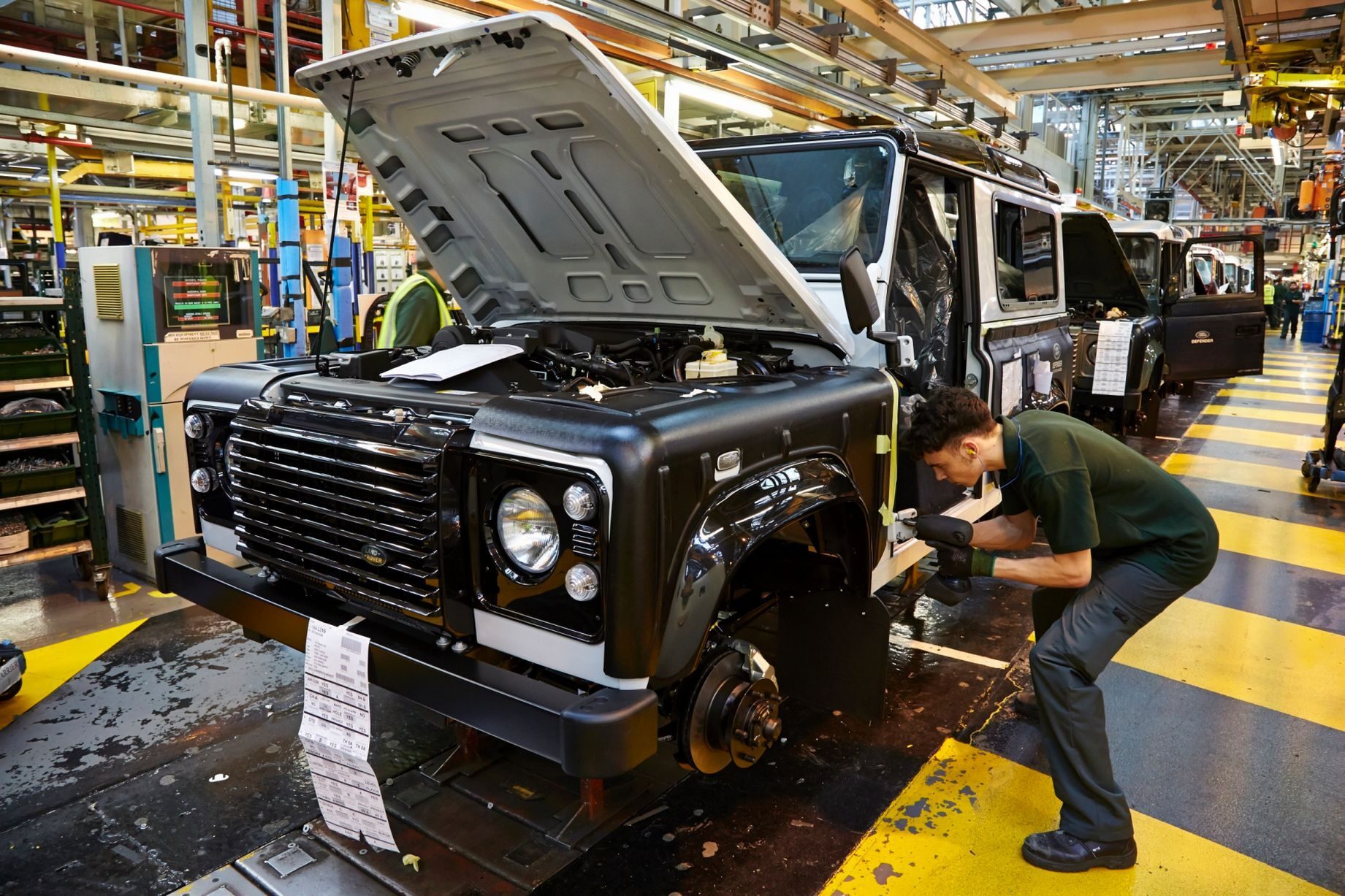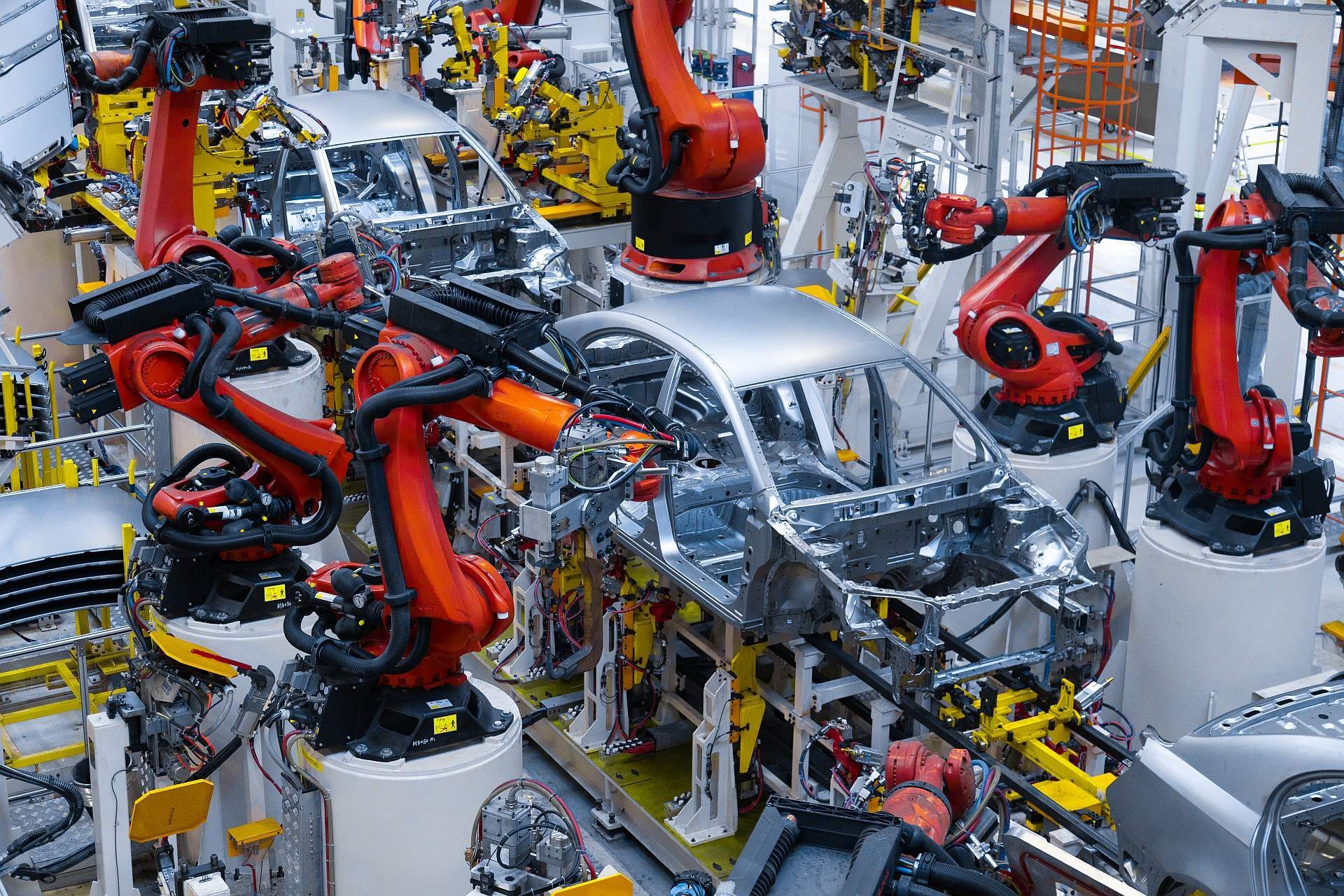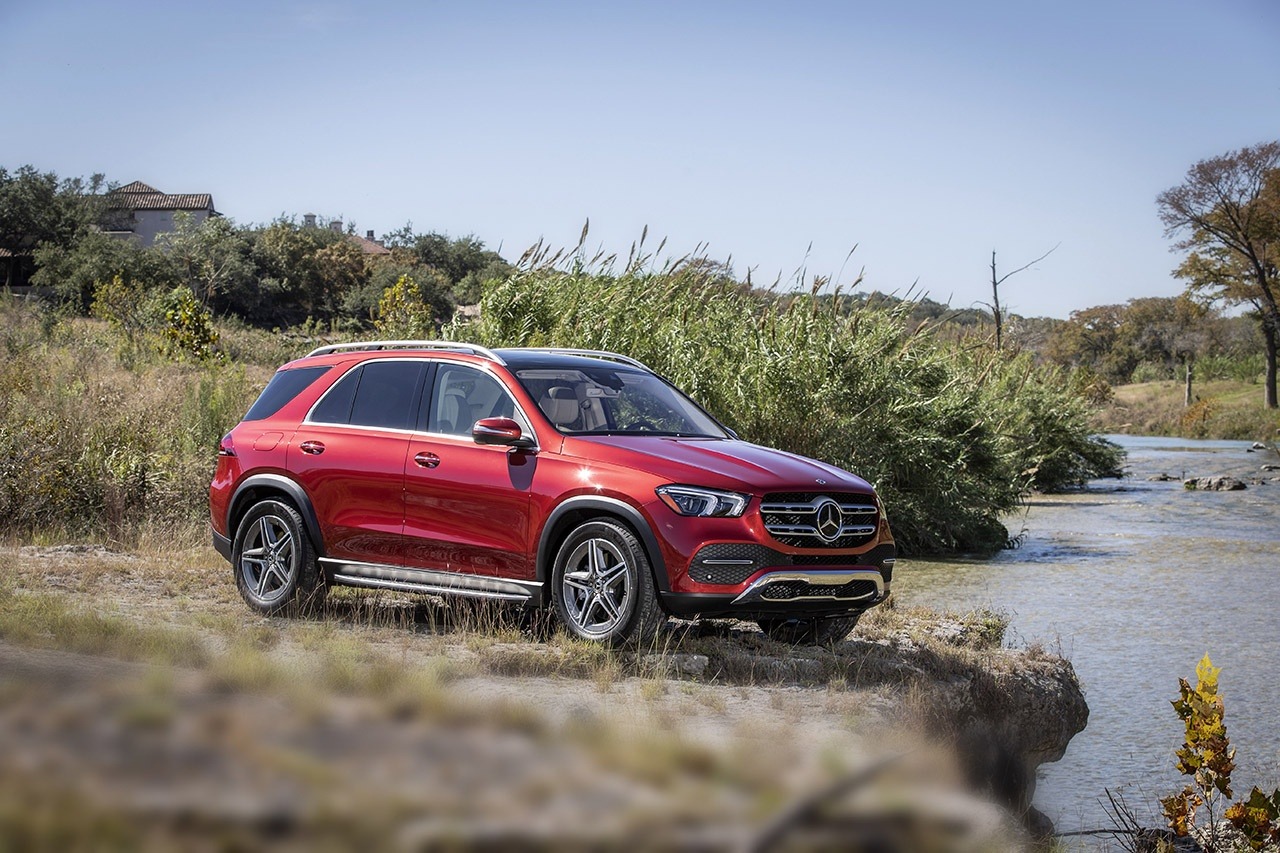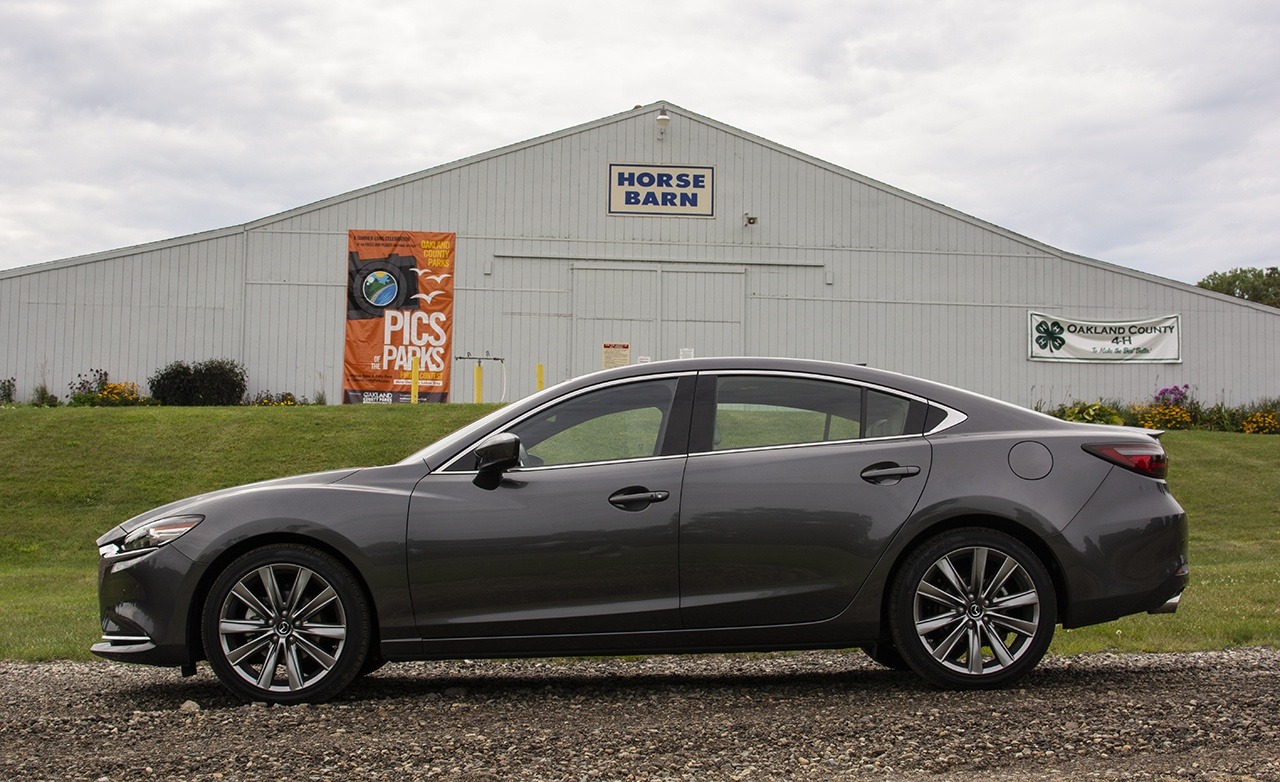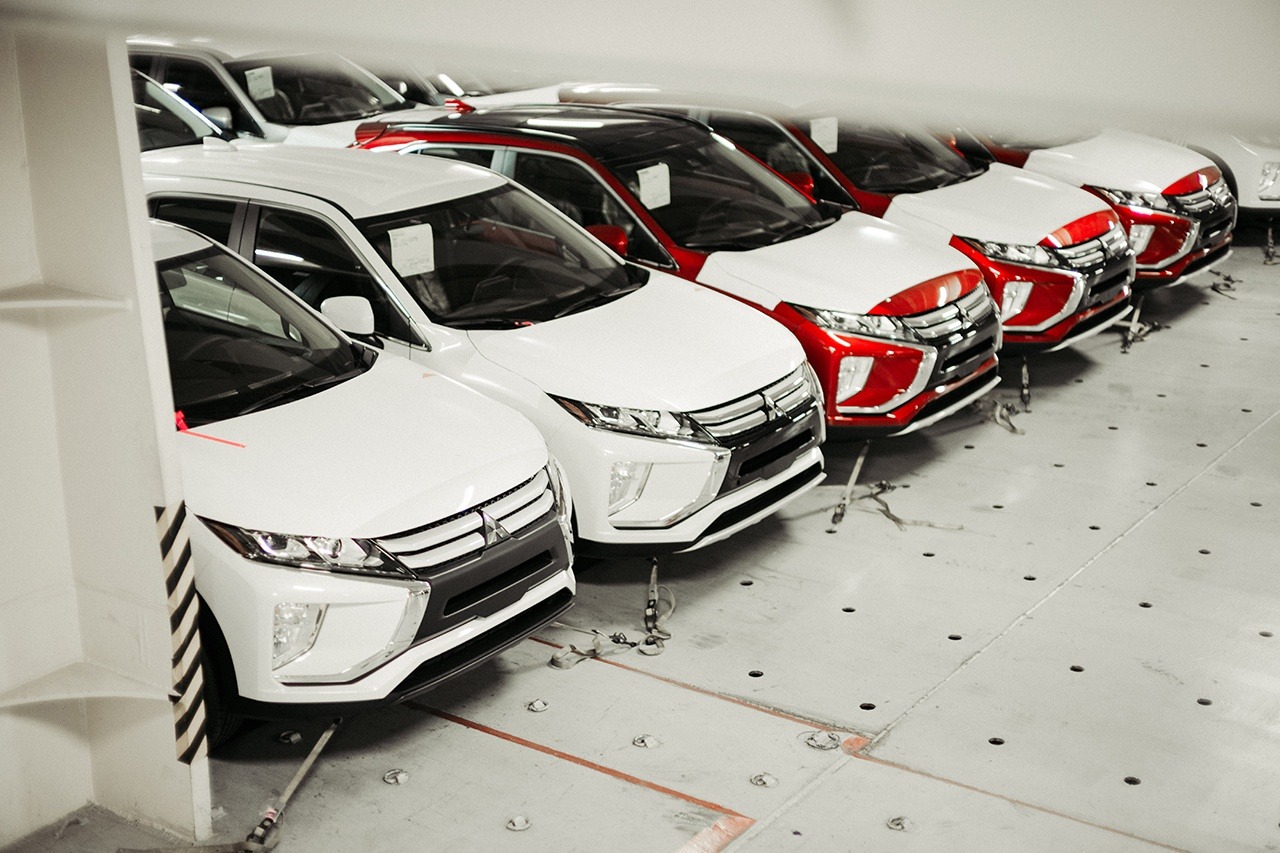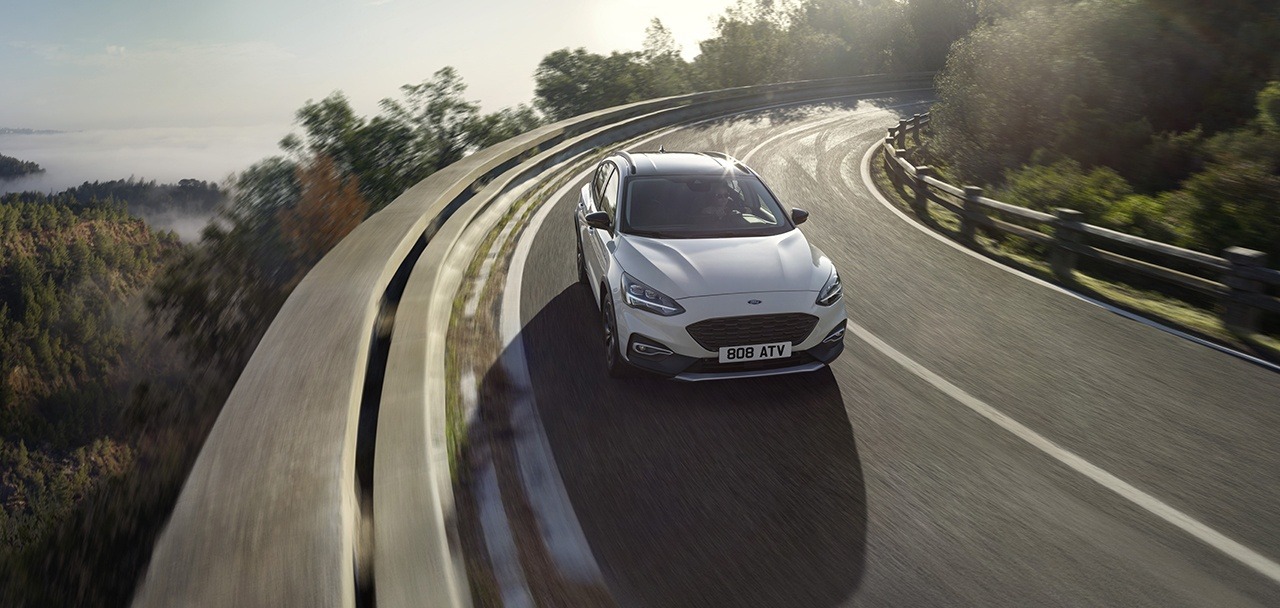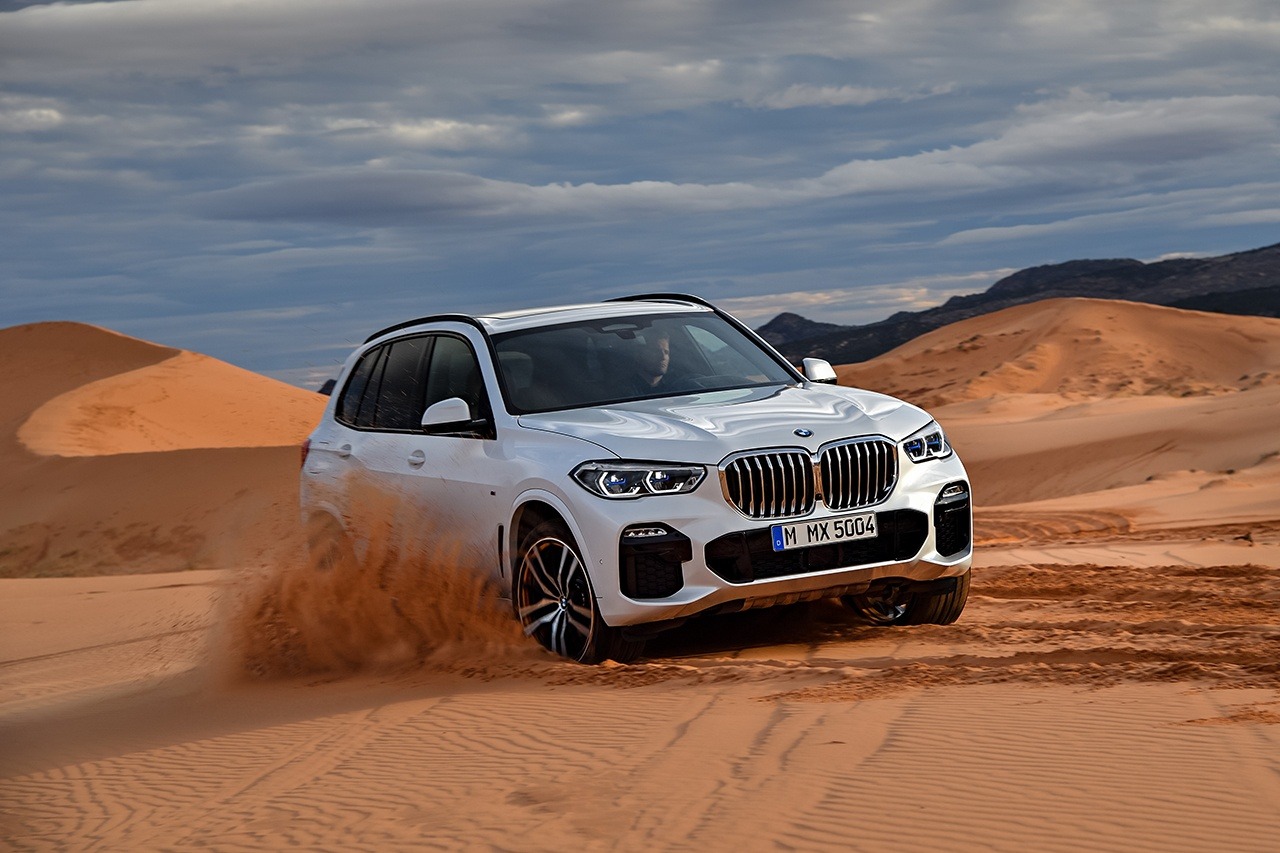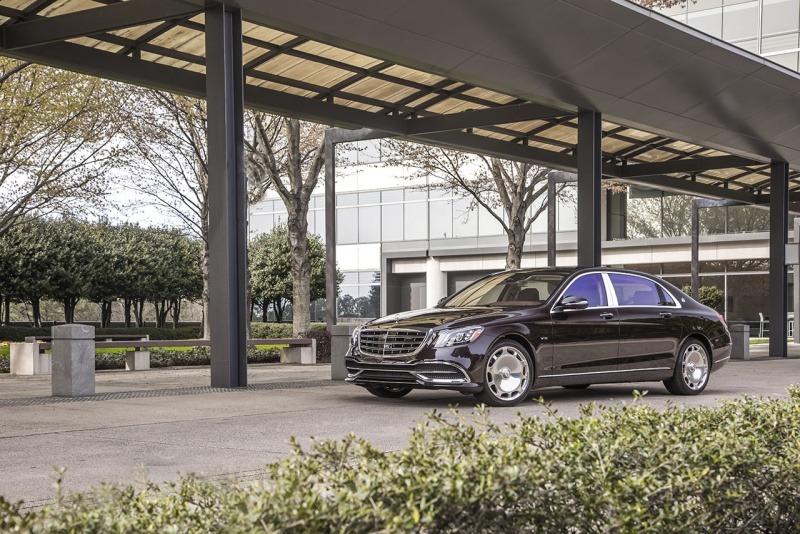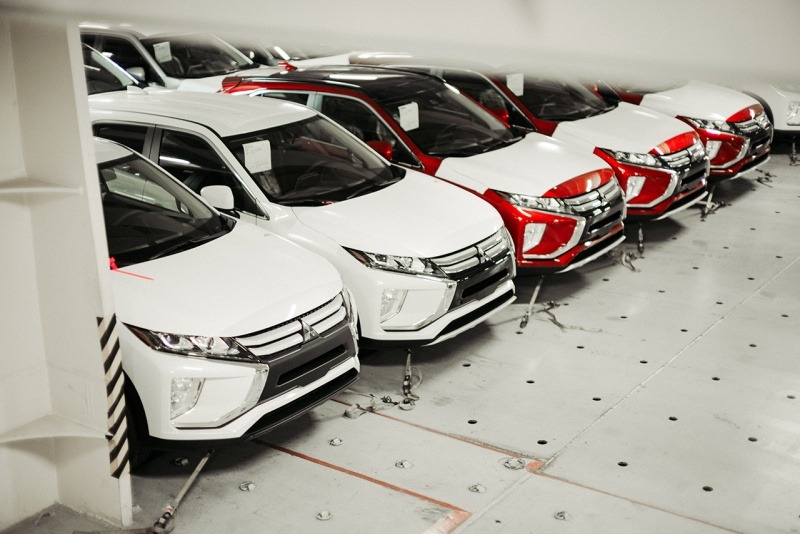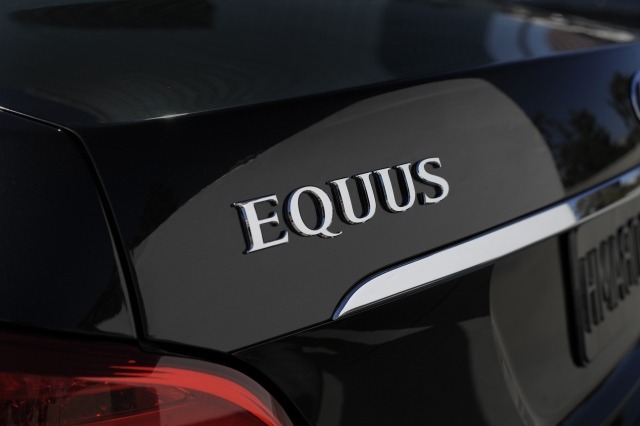Search the Community
Showing results for tags 'Tariffs'.
-
Tariff Tuesday is the day where we cover how President Trump’s tariffs, if fully enacted, will impact the auto industry, increase costs, and limit consumer choice. We started this series on April 15, Tax Day for those in the United States, because Trump’s tariffs amount to one of the largest single increases in taxes on the American People. The tariffs which, if fully implemented, will raise $1.4 trillion in revenue, and increase costs per household between $1,900 to $7,600 per year. Manufacturers are shuffling their decks Since the Trump tariffs have gone into place, automobile manufacturers have been rushing to shift production to avoid tariffs and reciprocal tariffs imposed by other countries. This has lead to some breathless and inaccurate or incomplete headlines like: Mazda set to stop U.S. production on this popular model. Here’s what that means for you - Daily Dot First major auto manufacturer (Mazda) pulls plug on US production due to tariffs - MSN Massive blow to Trump as Japanese car giant (Subaru) moves manufacturing OUT of US in tariff twist - Daily Mail Trump tariffs cost U.S. millions as Subaru shifts supply to Japan - MSN While some of the above articles explain the truth in the body of the stories, in these days of click-bait headlines, it is important that we don't bury the lead. For both Mazda and Subaru, the production shifts are for vehicles built in the U.S. and bound for Canada. Because of Trump's tariffs on imported vehicles, Canada placed a reciprocal tariff on vehicles imported from the U.S. Going forward, Subarus sold in Canada will have a "Made in Japan" sticker on them. Prior to Trump's election, the popular Forrester model was slated start production in Indiana taking over allocation from the outgoing Subaru Outback. The new Subaru Outback Crossover is slated to be built in Japan, however that may change with the tariffs in place. Unlike the domestic manufacturers, Subaru does not have multiple plants in the U.S. to move overseas production to their Lafayette, IN plant. The Subaru CrossTrek entered into production in the U.S. in 2023, only certain trimlines are made here with the base and premium trims still built in Japan. It is likely that Subaru will shift all US Crosstrek production to Indiana. Subaru's sports car, the Subaru BR-Z, is unlikely to survive the tariff regime as we explained in our Sports Cars are Dead piece. The Mazda CX-50 is the only Mazda model offered for sale in the U.S. that is built in the U.S in Huntsville, Alabama. The Huntsville plant is a joint venture with Toyota who builds the Corolla Cross there as well. Mazda announced a pause in production of the CX-50 after the tariffs went into affect to regroup. The plant had been supplying roughly 11,000 CX-50s to the Canadian market. It is likely that Canadian CX-50s will be imported from China in future, though there has been no official word on that from Mazda yet. In a statement, Mazda says that overall production of the CX-50 at Huntsville should remain the same, meaning that factory's output will be entirely for the U.S. market. It is likely that Mazda expects sales of the CX-5, a roughly similar sized crossover at a lower price and imported from Japan, will fall as the tariffs push the price above the CX-50's price. It's also possible that Mazda sees opportunity for increased sales of the CX-50 being one of the few small crossovers built in the US. Audi, which paused all imports in early April and has no production in the U.S., is looking to move production of certain models to Volkswagen's Chattanooga TN plant. The Audi Q4 eTron is built on the same platform as the Volkswagen ID.4 built in Chattanooga while the next version of the Audi Q8 eTron could join production of the new Scout truck and SUV at that brand's new plant in South Carolina. The larger brands like Toyota, GM, and Ford have more flexibility to move production around. GM in particular is looking to restructure its supply lines on trucks if the tariffs remain permanent, however, that does not necessarily mean a return to US production if they can prove enough of their sourced parts come from the U.S. Playing the cards in their hand Across the board, manufacturers are digging into their supply chains to tag parts made in the U.S., Mexico, and Canada. In the new tariff requirements there is an exemption for raw materials and parts sourced from the U.S. in vehicles that have their final assembly in Mexico or Canada. Even with the supply-chain turmoil of the Covid-19 years, manufacturers do not have their parts content sourcing mapped to the raw material level. However, in order to qualify for that exemption, the vehicle must have 75-percent or more of its content sourced from North America. Calculating those savings correctly could make or break a model. According to The Peterson Institute for International Economics, Mexican built vehicles already have an average of 40-percent to as high as 50-percent U.S. content. (Automotive News - Subscription Required). Previously, an engine assembled in Mexico would be tariff free as long as some of the parts were made in the U.S. Now, manufacturers have to calculate which parts come from where, where were the raw materials sourced, and how much value was added in a particular country in order to calculate the tax. Unfortunately, even those calculations cost time and money manufacturers will pass an increase cost to consumers without an increase in value. Gotta know when to fold'em One of the many reasons cited by Trump for imposing these tariffs is to correct what he sees as an unfair trade imbalance between the U.S., Canada, and Mexico. Setting aside the fact that Canada has the same size population as the State of California and as such there would never be balanced trade between the U.S. and Canada, the unintended consequences are the reactions by auto manufacturers are making the trade imbalance worse with at least roughly 40,000 fewer U.S. built vehicles being exported to Canada and the remainder scrambling to prove their content sources to avoid the Trump tariffs and leave production in Mexico or Canada. Any trade imbalance is not going to be fixed by Audi moving a few low volume products to existing U.S. factories. This works out to a net loss for the American consumer. Read more Tariff Tuesday articles below: Tariff Tuesday - Big Trouble in Little Crossovers Tariff Tuesday - Buick Killing it in China; Killed in the U.S. Tariff Tuesday - Sports Cars are Dead View full article
-
The United States and United Kingdom have reached a deal on vehicle import tariffs into the U.S. that could serve as a model for future deals between the U.S. and other countries. As part of a larger trade deal, the UK will get preferential treatment on auto tariffs for the first 100,000 vehicles imported. Import tariffs, which started on April 3rd for UK vehicles, are currently at 25-percent and will be reduced to 10-percent on that first 100,000 units annually. The U.K. conversely agreed to lower its tariffs from 5.1-percent to 1.8-percent. The U.S. also dropped tariffs on U.K. steel. While 10-percent on vehicles is still four times the 2.5-percent charged prior to April 3rd, it is likely to still be a lower tax than those levied on many vehicles imported from Mexico or Canada that contain only 50-percent U.S. made parts. The 25-percent Tariffs on auto parts appear to remain in place. While Jaguar and Land Rover are the obvious benefactors of this trade agreement, Nissan has manufacturing facilities in the U.K. that could be utilized for production in North America. Previously, the Nissan plant in Sunderland, England produced the Infiniti QX30 for North America. The plant currently produces the Nissan Juke and Nissan Qashqai (Rogue Sport), neither of which are still sold in the U.S. Honda closed their UK manufacturing facility in 2021. View full article
- 7 replies
-
- jaguar
- land rover
-
(and 1 more)
Tagged with:
-
The United States and United Kingdom have reached a deal on vehicle import tariffs into the U.S. that could serve as a model for future deals between the U.S. and other countries. As part of a larger trade deal, the UK will get preferential treatment on auto tariffs for the first 100,000 vehicles imported. Import tariffs, which started on April 3rd for UK vehicles, are currently at 25-percent and will be reduced to 10-percent on that first 100,000 units annually. The U.K. conversely agreed to lower its tariffs from 5.1-percent to 1.8-percent. The U.S. also dropped tariffs on U.K. steel. While 10-percent on vehicles is still four times the 2.5-percent charged prior to April 3rd, it is likely to still be a lower tax than those levied on many vehicles imported from Mexico or Canada that contain only 50-percent U.S. made parts. The 25-percent Tariffs on auto parts appear to remain in place. While Jaguar and Land Rover are the obvious benefactors of this trade agreement, Nissan has manufacturing facilities in the U.K. that could be utilized for production in North America. Previously, the Nissan plant in Sunderland, England produced the Infiniti QX30 for North America. The plant currently produces the Nissan Juke and Nissan Qashqai (Rogue Sport), neither of which are still sold in the U.S. Honda closed their UK manufacturing facility in 2021.
- 7 comments
-
- 1
-

-
- jaguar
- land rover
-
(and 1 more)
Tagged with:
-
Tariff Tuesday is the day where we cover how President Trump’s tariffs, if fully enacted, will impact the auto industry, increase costs, and limit consumer choice. We started this series on April 15, Tax Day for those in the United States, because Trump’s tariffs amount to one of the largest single increases in taxes on the American People. The tariffs which, if fully implemented, will raise $1.4 trillion in revenue, and increase costs per household between $1,900 to $7,600 per year. Manufacturers are shuffling their decks Since the Trump tariffs have gone into place, automobile manufacturers have been rushing to shift production to avoid tariffs and reciprocal tariffs imposed by other countries. This has lead to some breathless and inaccurate or incomplete headlines like: Mazda set to stop U.S. production on this popular model. Here’s what that means for you - Daily Dot First major auto manufacturer (Mazda) pulls plug on US production due to tariffs - MSN Massive blow to Trump as Japanese car giant (Subaru) moves manufacturing OUT of US in tariff twist - Daily Mail Trump tariffs cost U.S. millions as Subaru shifts supply to Japan - MSN While some of the above articles explain the truth in the body of the stories, in these days of click-bait headlines, it is important that we don't bury the lead. For both Mazda and Subaru, the production shifts are for vehicles built in the U.S. and bound for Canada. Because of Trump's tariffs on imported vehicles, Canada placed a reciprocal tariff on vehicles imported from the U.S. Going forward, Subarus sold in Canada will have a "Made in Japan" sticker on them. Prior to Trump's election, the popular Forrester model was slated start production in Indiana taking over allocation from the outgoing Subaru Outback. The new Subaru Outback Crossover is slated to be built in Japan, however that may change with the tariffs in place. Unlike the domestic manufacturers, Subaru does not have multiple plants in the U.S. to move overseas production to their Lafayette, IN plant. The Subaru CrossTrek entered into production in the U.S. in 2023, only certain trimlines are made here with the base and premium trims still built in Japan. It is likely that Subaru will shift all US Crosstrek production to Indiana. Subaru's sports car, the Subaru BR-Z, is unlikely to survive the tariff regime as we explained in our Sports Cars are Dead piece. The Mazda CX-50 is the only Mazda model offered for sale in the U.S. that is built in the U.S in Huntsville, Alabama. The Huntsville plant is a joint venture with Toyota who builds the Corolla Cross there as well. Mazda announced a pause in production of the CX-50 after the tariffs went into affect to regroup. The plant had been supplying roughly 11,000 CX-50s to the Canadian market. It is likely that Canadian CX-50s will be imported from China in future, though there has been no official word on that from Mazda yet. In a statement, Mazda says that overall production of the CX-50 at Huntsville should remain the same, meaning that factory's output will be entirely for the U.S. market. It is likely that Mazda expects sales of the CX-5, a roughly similar sized crossover at a lower price and imported from Japan, will fall as the tariffs push the price above the CX-50's price. It's also possible that Mazda sees opportunity for increased sales of the CX-50 being one of the few small crossovers built in the US. Audi, which paused all imports in early April and has no production in the U.S., is looking to move production of certain models to Volkswagen's Chattanooga TN plant. The Audi Q4 eTron is built on the same platform as the Volkswagen ID.4 built in Chattanooga while the next version of the Audi Q8 eTron could join production of the new Scout truck and SUV at that brand's new plant in South Carolina. The larger brands like Toyota, GM, and Ford have more flexibility to move production around. GM in particular is looking to restructure its supply lines on trucks if the tariffs remain permanent, however, that does not necessarily mean a return to US production if they can prove enough of their sourced parts come from the U.S. Playing the cards in their hand Across the board, manufacturers are digging into their supply chains to tag parts made in the U.S., Mexico, and Canada. In the new tariff requirements there is an exemption for raw materials and parts sourced from the U.S. in vehicles that have their final assembly in Mexico or Canada. Even with the supply-chain turmoil of the Covid-19 years, manufacturers do not have their parts content sourcing mapped to the raw material level. However, in order to qualify for that exemption, the vehicle must have 75-percent or more of its content sourced from North America. Calculating those savings correctly could make or break a model. According to The Peterson Institute for International Economics, Mexican built vehicles already have an average of 40-percent to as high as 50-percent U.S. content. (Automotive News - Subscription Required). Previously, an engine assembled in Mexico would be tariff free as long as some of the parts were made in the U.S. Now, manufacturers have to calculate which parts come from where, where were the raw materials sourced, and how much value was added in a particular country in order to calculate the tax. Unfortunately, even those calculations cost time and money manufacturers will pass an increase cost to consumers without an increase in value. Gotta know when to fold'em One of the many reasons cited by Trump for imposing these tariffs is to correct what he sees as an unfair trade imbalance between the U.S., Canada, and Mexico. Setting aside the fact that Canada has the same size population as the State of California and as such there would never be balanced trade between the U.S. and Canada, the unintended consequences are the reactions by auto manufacturers are making the trade imbalance worse with at least roughly 40,000 fewer U.S. built vehicles being exported to Canada and the remainder scrambling to prove their content sources to avoid the Trump tariffs and leave production in Mexico or Canada. Any trade imbalance is not going to be fixed by Audi moving a few low volume products to existing U.S. factories. This works out to a net loss for the American consumer. Read more Tariff Tuesday articles below: Tariff Tuesday - Big Trouble in Little Crossovers Tariff Tuesday - Buick Killing it in China; Killed in the U.S. Tariff Tuesday - Sports Cars are Dead
-

Rumorpile: China May Reduce Tariffs On U.S.-Made Cars
William Maley posted an article in Automotive Industry
The Chinese government is considering a proposal to reduce tariffs on U.S.-Built vehicles from the current 40 percent back down to the 15 percent before the trade war broke out between it and the U.S. Sources tell Bloomberg a proposal has been submitted to the cabinet to be reviewed in the coming days. This proposal stems from a trade summit in Buenos Aires where U.S. President Donald Trump and Chinese President Xi Jinping agreed to a 90-day truce on the trade war earlier this month. After the meeting, Trump tweeted out that "China agreed to “reduce and remove” tariffs on imported American-made cars, something China did not confirm at the time." Shares of various automakers including Diamler, Ford, and Tesla rose on the news. The trade war between the U.S. and China has taken a toll on automakers. Both BMW and Dimaler have warned of lower profits as tariffs have forced them to raise prices in China. Others such as Volvo and Ford have made changes to production and vehicle plans. China's Finance Ministry didn't respond to Bloomberg's request for a comment. Source: Bloomberg- 9 comments
-
- automobiles
- cars
- (and 6 more)
-
The Chinese government is considering a proposal to reduce tariffs on U.S.-Built vehicles from the current 40 percent back down to the 15 percent before the trade war broke out between it and the U.S. Sources tell Bloomberg a proposal has been submitted to the cabinet to be reviewed in the coming days. This proposal stems from a trade summit in Buenos Aires where U.S. President Donald Trump and Chinese President Xi Jinping agreed to a 90-day truce on the trade war earlier this month. After the meeting, Trump tweeted out that "China agreed to “reduce and remove” tariffs on imported American-made cars, something China did not confirm at the time." Shares of various automakers including Diamler, Ford, and Tesla rose on the news. The trade war between the U.S. and China has taken a toll on automakers. Both BMW and Dimaler have warned of lower profits as tariffs have forced them to raise prices in China. Others such as Volvo and Ford have made changes to production and vehicle plans. China's Finance Ministry didn't respond to Bloomberg's request for a comment. Source: Bloomberg View full article
- 9 replies
-
- automobiles
- cars
- (and 6 more)
-
Back i n May, the U.S. Commerce Department launched an investigation into car imports to determine the impact of car imports. The investigation falls under Section 232 of the Trade Expansion Act of 1962 which states "whether imports of automobiles, including SUVs, vans and light trucks, and automotive parts into the United States threaten to impair the national security." This could allow the Trump administration to levy tariffs as high as 25 percent on foreign-built vehicles. Yesterday, the Commerce Department submitted their draft report into the investigation. The Trump administration has 90 days to determine whether or not to move forward on various measures such as implementing tariffs if the report concludes that imports are a security threat. But Bloomberg is reporting that the administration is holding off on imposing new tariffs. Two sources tell the publication that top officials are considering revising plans due to the report. The sources also said that the report "would be subject to further changes." President Trump has been using the threat of tariffs as leverage during negotiations with trade partners. Already, Trump has promised not to impose any auto tariffs on Europe while the two work on a new trade deal. But a number of foreign governments and companies have said the tariffs would cause more harm. The National Automobile Dealers Association estimates tariffs would add $2,270 to the cost of U.S.-built vehicles and $6,875 to the cost of imported vehicles. It doesn't help that many in Trump's senior economic team believe slapping tariffs on imported cars is a bad idea. According to a report from Axios yesterday, "about every member of his senior economic team besides Peter Navarro believes this is a terrible idea." View full article
-

U.S. Is Planning To Hold Back On Issuing Car Tariffs
William Maley posted an article in Automotive Industry
Back i n May, the U.S. Commerce Department launched an investigation into car imports to determine the impact of car imports. The investigation falls under Section 232 of the Trade Expansion Act of 1962 which states "whether imports of automobiles, including SUVs, vans and light trucks, and automotive parts into the United States threaten to impair the national security." This could allow the Trump administration to levy tariffs as high as 25 percent on foreign-built vehicles. Yesterday, the Commerce Department submitted their draft report into the investigation. The Trump administration has 90 days to determine whether or not to move forward on various measures such as implementing tariffs if the report concludes that imports are a security threat. But Bloomberg is reporting that the administration is holding off on imposing new tariffs. Two sources tell the publication that top officials are considering revising plans due to the report. The sources also said that the report "would be subject to further changes." President Trump has been using the threat of tariffs as leverage during negotiations with trade partners. Already, Trump has promised not to impose any auto tariffs on Europe while the two work on a new trade deal. But a number of foreign governments and companies have said the tariffs would cause more harm. The National Automobile Dealers Association estimates tariffs would add $2,270 to the cost of U.S.-built vehicles and $6,875 to the cost of imported vehicles. It doesn't help that many in Trump's senior economic team believe slapping tariffs on imported cars is a bad idea. According to a report from Axios yesterday, "about every member of his senior economic team besides Peter Navarro believes this is a terrible idea." -
Back in the summer, Volvo opened its first plant in South Carolina where it would be producing the all-new S60 sedan. The original plan was to export half of the S60s built to other markets. But the current trade dispute between the U.S. and China has caused Volvo to change their plans. Anders Gustafsson, president of Volvo Cars USA said at a meeting of the Automotive Press Association in Detroit that the automaker is changing the focus of the South Carolina factory to build S60s for the U.S. market. A small number of S60s will still be exported to Europe. “We’ll go at this change not with a smile, but we know what we need to do. We have a global manufacturing structure that helps us maneuver in these tough waters,” said Gustafsson. Back in July, Volvo announced that it would be sourcing XC60s destined for the U.S. from Europe. Previously, XC60s heading to the U.S. were coming from China. The move is expected to take place in January. Right now, Volvo is absorbing the 27.5 percent tariff on Chinese auto imports on the XC60. But Gustafsson said that is taking a big toll on their profits. “We are absorbing the tariffs, and that really is what you saw in our financial results. But we can, under no circumstances, absorb tariffs in the long run. It’s huge,” he said. The tariffs could also affect future plans for the South Carolina plant. Volvo is planning to have production of the next-generation XC90 take place in the U.S. beginning in 2022. This would increase the number of workers from 1,200 to 3,900. Volvo will export some XC90s to Europe, but also considering exporting some China at a loss. "We might need to make the XC90 in another country too, if tariffs keep up," said Gustafsson. Source: Bloomberg (Subscription Required), Motor Trend View full article
- 4 replies
-
- production plans
- s60
-
(and 2 more)
Tagged with:
-

Volvo Scraps Production Plans In An Effort To Dodge Tariffs
William Maley posted an article in Volvo
Back in the summer, Volvo opened its first plant in South Carolina where it would be producing the all-new S60 sedan. The original plan was to export half of the S60s built to other markets. But the current trade dispute between the U.S. and China has caused Volvo to change their plans. Anders Gustafsson, president of Volvo Cars USA said at a meeting of the Automotive Press Association in Detroit that the automaker is changing the focus of the South Carolina factory to build S60s for the U.S. market. A small number of S60s will still be exported to Europe. “We’ll go at this change not with a smile, but we know what we need to do. We have a global manufacturing structure that helps us maneuver in these tough waters,” said Gustafsson. Back in July, Volvo announced that it would be sourcing XC60s destined for the U.S. from Europe. Previously, XC60s heading to the U.S. were coming from China. The move is expected to take place in January. Right now, Volvo is absorbing the 27.5 percent tariff on Chinese auto imports on the XC60. But Gustafsson said that is taking a big toll on their profits. “We are absorbing the tariffs, and that really is what you saw in our financial results. But we can, under no circumstances, absorb tariffs in the long run. It’s huge,” he said. The tariffs could also affect future plans for the South Carolina plant. Volvo is planning to have production of the next-generation XC90 take place in the U.S. beginning in 2022. This would increase the number of workers from 1,200 to 3,900. Volvo will export some XC90s to Europe, but also considering exporting some China at a loss. "We might need to make the XC90 in another country too, if tariffs keep up," said Gustafsson. Source: Bloomberg (Subscription Required), Motor Trend- 4 comments
-
- production plans
- s60
-
(and 2 more)
Tagged with:
-
Yesterday, President Donald Trump announced a new round of tariffs on about $200 billion in Chinese goods beginning next Monday. The tariffs are set at 10 percent and could rise to 25 percent in January if the Chinese government refuses to offer concessions. Today, the Chinese government announced that it would take retaliatory action by placing tariffs on $60 billion of U.S. goods. This is bad news for automakers as the Detroit Free Reports that more than 100 car parts - ranging from tires to batteries - will be hit by the tariffs. Analysts told the paper the increased tariffs will raise prices and cause sales to fall, along with profits being cut for automakers. It's going to be felt by Americans and it's going to be a big deal. Tariffs are taxes on consumption. Eventually, costs will be passed down to the consumer. This will drive vehicle costs higher. It also includes a lot of body shop equipment," said Peter Nagle, senior analyst at IHS Markit. Analysts all agree that prices will go up, but aren't sure by how much. "Prices are going to go up, but they won't go up by 25 percent. It is most unfortunate that this is coming at a time when the auto cycle is in very late stage. Vehicle sales already are in slow decline. This will probably will be quite a gut punch when they are forced to raise prices," explained Jon Gabrielsen, a market economist who advises automakers and auto suppliers. "It covers literally everything that goes into the construction of an automobile, from the smallest components and material inputs like the cords in tires and shafts and gears and bearings all the way up to completed engines and, in some cases, chassis with engines mounted. Thing is, it takes about three years to source each product. It takes many years and possibly a decade to make that full move." Automakers didn't comment as to how they plan to absorb and pass the cost onto consumers. They did reiterate pleas for both governments to sit down and work this out. Source: Detroit Free Press, Bloomberg via Automotive News (Subscription Required) View full article
- 10 replies
-
- 1
-

-
- increase
- new car prices
-
(and 3 more)
Tagged with:
-

Why New Car Prices Are Expected To Rise Next Year
William Maley posted an article in Automotive Industry
Yesterday, President Donald Trump announced a new round of tariffs on about $200 billion in Chinese goods beginning next Monday. The tariffs are set at 10 percent and could rise to 25 percent in January if the Chinese government refuses to offer concessions. Today, the Chinese government announced that it would take retaliatory action by placing tariffs on $60 billion of U.S. goods. This is bad news for automakers as the Detroit Free Reports that more than 100 car parts - ranging from tires to batteries - will be hit by the tariffs. Analysts told the paper the increased tariffs will raise prices and cause sales to fall, along with profits being cut for automakers. It's going to be felt by Americans and it's going to be a big deal. Tariffs are taxes on consumption. Eventually, costs will be passed down to the consumer. This will drive vehicle costs higher. It also includes a lot of body shop equipment," said Peter Nagle, senior analyst at IHS Markit. Analysts all agree that prices will go up, but aren't sure by how much. "Prices are going to go up, but they won't go up by 25 percent. It is most unfortunate that this is coming at a time when the auto cycle is in very late stage. Vehicle sales already are in slow decline. This will probably will be quite a gut punch when they are forced to raise prices," explained Jon Gabrielsen, a market economist who advises automakers and auto suppliers. "It covers literally everything that goes into the construction of an automobile, from the smallest components and material inputs like the cords in tires and shafts and gears and bearings all the way up to completed engines and, in some cases, chassis with engines mounted. Thing is, it takes about three years to source each product. It takes many years and possibly a decade to make that full move." Automakers didn't comment as to how they plan to absorb and pass the cost onto consumers. They did reiterate pleas for both governments to sit down and work this out. Source: Detroit Free Press, Bloomberg via Automotive News (Subscription Required)- 10 comments
-
- increase
- new car prices
-
(and 3 more)
Tagged with:
-
Ford had planned on selling two cars by 2019 in the U.S. - the Mustang and Focus Active. The latter took elements of a crossover with a higher ride height, body cladding, and new bumpers, and put them onto a Focus hatchback. But plans to bring this model to the U.S. have been canned. Ford announced today that it has canceled the Focus Active as tariffs on Chinese-made goods would eat into profits. The company announced last year that it would import the next-generation Focus from China. "Given the negative financial impact of the new tariffs, we've decided not to import this vehicle from China. The significant thing that moved was the tariffs going up substantially higher. We're choosing to deploy resources elsewhere," said Kumar Galhotra, Ford president of North America. Unlike General Motors which had applied for an exemption on the Chinese-built Buick Envision, Ford did not apply for one as it would have not worked out due to production timing and a small number of sales - the company projected to sell fewer than 50,000 Focus Actives in the U.S. Kristin Dziczek, vice president of the Center for Automotive Research tells The Detroit News that this could be the first of many announcements. The combination of Chinese tariffs, along with the threat of a 25 percent tariff on imported cars and parts may push a lot of products out of the U.S. “Many models will be withdrawn from the U.S. market, and many won’t be built in the U.S. at all. There are a whole lot of implications for the automotive industry and for consumers in terms of choice and prices,” she explained. The decision also puts Ford in a tough spot. The Focus Active was going to be one of the models that would fill in the space left by sedans that are going to be cut. "It didn't make sense for us to continue to invest in this program. We're looking at the entire landscape, and we're thinking through what other products we can offer customers," said Galhotra. Source: Automotive News (Subscription Required), The Detroit News
-
- canned
- focus active
-
(and 3 more)
Tagged with:
-
Ford had planned on selling two cars by 2019 in the U.S. - the Mustang and Focus Active. The latter took elements of a crossover with a higher ride height, body cladding, and new bumpers, and put them onto a Focus hatchback. But plans to bring this model to the U.S. have been canned. Ford announced today that it has canceled the Focus Active as tariffs on Chinese-made goods would eat into profits. The company announced last year that it would import the next-generation Focus from China. "Given the negative financial impact of the new tariffs, we've decided not to import this vehicle from China. The significant thing that moved was the tariffs going up substantially higher. We're choosing to deploy resources elsewhere," said Kumar Galhotra, Ford president of North America. Unlike General Motors which had applied for an exemption on the Chinese-built Buick Envision, Ford did not apply for one as it would have not worked out due to production timing and a small number of sales - the company projected to sell fewer than 50,000 Focus Actives in the U.S. Kristin Dziczek, vice president of the Center for Automotive Research tells The Detroit News that this could be the first of many announcements. The combination of Chinese tariffs, along with the threat of a 25 percent tariff on imported cars and parts may push a lot of products out of the U.S. “Many models will be withdrawn from the U.S. market, and many won’t be built in the U.S. at all. There are a whole lot of implications for the automotive industry and for consumers in terms of choice and prices,” she explained. The decision also puts Ford in a tough spot. The Focus Active was going to be one of the models that would fill in the space left by sedans that are going to be cut. "It didn't make sense for us to continue to invest in this program. We're looking at the entire landscape, and we're thinking through what other products we can offer customers," said Galhotra. Source: Automotive News (Subscription Required), The Detroit News View full article
-
- canned
- focus active
-
(and 3 more)
Tagged with:
-
The effects of the on-going trade spat between the U.S. and China are beginning to be felt. According to Reuters, BMW is increasing the pricing on the U.S.-built X5 and X6 crossovers for the Chinese market. In a statement, BMW said the price increases will range from four to seven percent. This will only make a small dent in the 40 percent tariff being slapped on U.S. made vehicles entering China. BMW will be absorbing the remainder of the tariff for the time being. “BMW stands for free (trade) but can’t stand still without taking actions to respond to the market changes,” said a BMW spokeswoman. The German automaker isn't the only one to raise prices on vehicles destined to China. Reuters has learned from dealers that Mercedes-Bena has raised the price of the GLE-Class, which is built in Alabama. Source: Reuters View full article
-
The effects of the on-going trade spat between the U.S. and China are beginning to be felt. According to Reuters, BMW is increasing the pricing on the U.S.-built X5 and X6 crossovers for the Chinese market. In a statement, BMW said the price increases will range from four to seven percent. This will only make a small dent in the 40 percent tariff being slapped on U.S. made vehicles entering China. BMW will be absorbing the remainder of the tariff for the time being. “BMW stands for free (trade) but can’t stand still without taking actions to respond to the market changes,” said a BMW spokeswoman. The German automaker isn't the only one to raise prices on vehicles destined to China. Reuters has learned from dealers that Mercedes-Bena has raised the price of the GLE-Class, which is built in Alabama. Source: Reuters
-
The threat of a 20 percent tariff on vehicles exported from the European Union has a number of automakers panicking. But that tariff could be taken off the table if the EU removes their tariff on vehicles exported from the U.S. German paper Handelsblatt learned from sources that a meeting was held between the US ambassador to Germany, Richard Grenell and number of CEOs from German automakers. Grenell presented an offer directly from President Donald Trump - "elimination of all tariffs on automobile imports on both sides and removal of non-tariff barriers, such as regulations on the size of rear mirrors." Currently, the U.S. levies a 2.5 percent tariff on vehicles imported from EU. A 10 percent tariff is slapped on by EU members on vehicles imported from the U.S. The hope is that German automakers can put some pressure on the government to possibly bring this up with other EU members. Diamler, Volkswagen, the German Economy Ministry, and the European Commission declined to comment when asked by Reuters. Source: Handelsblatt, Reuters
- 35 comments
-
- german automakers
- meeting
- (and 5 more)
-
The threat of a 20 percent tariff on vehicles exported from the European Union has a number of automakers panicking. But that tariff could be taken off the table if the EU removes their tariff on vehicles exported from the U.S. German paper Handelsblatt learned from sources that a meeting was held between the US ambassador to Germany, Richard Grenell and number of CEOs from German automakers. Grenell presented an offer directly from President Donald Trump - "elimination of all tariffs on automobile imports on both sides and removal of non-tariff barriers, such as regulations on the size of rear mirrors." Currently, the U.S. levies a 2.5 percent tariff on vehicles imported from EU. A 10 percent tariff is slapped on by EU members on vehicles imported from the U.S. The hope is that German automakers can put some pressure on the government to possibly bring this up with other EU members. Diamler, Volkswagen, the German Economy Ministry, and the European Commission declined to comment when asked by Reuters. Source: Handelsblatt, Reuters View full article
- 35 replies
-
- 1
-

-
- german automakers
- meeting
- (and 5 more)
-
If the Trump administration goes forward with placing a 25 percent tariff on new cars, it could cost automakers between one to two million sales. Analysis done by researcher LMC Automotive said if automakers pass on the full 25 percent tariff to customers, it could cut sales by about two million - about 10 percent of annual U.S. sales. If automakers absorb some some of tariff, the sales drop would reduce to just a million. Jeff Schuster, senior vice president of forecasting for LMC Automotive tells Bloomberg that consumers would react in one of three ways. Look at the used car market Move to domestically built products with cheaper pricetags Put off buying a new car with the hope this is only temporary While new car sales have been slipping from the record high of 17.6 million in 2016, LMC Automotive is predicting a still-strong 17.1 million deliveries by the end of the year. Source: Bloomberg
- 16 comments
-
- automakers
- sales drop
-
(and 1 more)
Tagged with:
-
If the Trump administration goes forward with placing a 25 percent tariff on new cars, it could cost automakers between one to two million sales. Analysis done by researcher LMC Automotive said if automakers pass on the full 25 percent tariff to customers, it could cut sales by about two million - about 10 percent of annual U.S. sales. If automakers absorb some some of tariff, the sales drop would reduce to just a million. Jeff Schuster, senior vice president of forecasting for LMC Automotive tells Bloomberg that consumers would react in one of three ways. Look at the used car market Move to domestically built products with cheaper pricetags Put off buying a new car with the hope this is only temporary While new car sales have been slipping from the record high of 17.6 million in 2016, LMC Automotive is predicting a still-strong 17.1 million deliveries by the end of the year. Source: Bloomberg View full article
- 16 replies
-
- automakers
- sales drop
-
(and 1 more)
Tagged with:
-
Automakers already have enough of a headache with the current administration in the white house, but news that broke today is only going to make it even worse. Wilbur Ross, the U.S. Secretary of Commerce has announced that President Donald ordered an investigation under Section 232 of the Trade Expansion Act of 1962 to determine "whether imports of automobiles, including SUVs, vans and light trucks, and automotive parts into the United States threaten to impair the national security." "There is evidence suggesting that, for decades, imports from abroad have eroded our domestic auto industry. The Department of Commerce will conduct a thorough, fair and transparent investigation into whether such imports are weakening our internal economy," said Ross in a statement. There's also this interesting bit in the statement, The Wall Street Journal reported yesterday that tariffs as high as 25 percent could be slapped on new cars. Currently, the tariff on imported vehicles is at 2.5 percent. Imported trucks are already hit with a 25 percent tariff via the chicken tax. There are a couple likely reasons for this investigation, Mid-term elections are coming up and this is seen as a way to court voters in the heartland with the promise of bringing back jobs to the U.S. Possibly being used as leverage in negotiations with Canada and Mexico over the North American Free Trade Agreement (NAFTA); the European Union, and China. This investigation could hurt Mexico the most as they are the largest source of U.S. auto imports - delivering just under $50 billion of imports last year. As for automakers, Bloomberg reports that Jaguar Land Rover, Mazda, and Mitsubishi would be the most affected as all of their vehicles are imported. The news sent the stock prices of foreign automakers downward. Shares in Mazda dropped 5.2 percent at the close of trade in Japan, while Daimler and BMW saw their stock price drop more than two percent. This announcement has gotten condemnation from various governments, trade groups, analysts, and automakers. Here are just a few. "China opposes the abuse of national security clauses, which will seriously damage multilateral trade systems and disrupt normal international trade order," said Gao Feng, spokesman at the Ministry of Commerce in China during a regular press briefing. "We will closely monitor the situation under the U.S. probe and fully evaluate the possible impact and resolutely defend our own legitimate interests." “We have to consider this as something of a provocation. I have the growing impression that the U.S. no longer believes in the competition of ideas, but only the law of power. It fills me with grave concern,” said Eric Schweitzer, president of the Association of German Chambers of Commerce and Industry. “The U.S. auto industry is thriving and growing. To our knowledge, no one is asking for this protection. This path leads inevitably to fewer choices and higher prices for cars and trucks in America,” said John Bozzella, CEO of the Association of Global Automakers, a trade group that represents Hyundai, Nissan, Toyota, and others. Source: Automotive News (Subscription Required), Bloomberg, Reuters, Wall Street Journal (Subscription Required), U.S. Department of Commerce U.S. Department of Commerce Initiates Section 232 Investigation into Auto Imports Today, following a conversation with President Donald J. Trump, U.S. Secretary of Commerce Wilbur Ross initiated an investigation under Section 232 of the Trade Expansion Act of 1962, as amended. The investigation will determine whether imports of automobiles, including SUVs, vans and light trucks, and automotive parts into the United States threaten to impair the national security as defined in Section 232. Secretary Ross sent a letter to Secretary of Defense James Mattis informing him of the investigation. “There is evidence suggesting that, for decades, imports from abroad have eroded our domestic auto industry,” said Secretary Ross. “The Department of Commerce will conduct a thorough, fair, and transparent investigation into whether such imports are weakening our internal economy and may impair the national security.” During the past 20 years, imports of passenger vehicles have grown from 32 percent of cars sold in the United States to 48 percent. From 1990 to 2017, employment in motor vehicle production declined by 22 percent, even though Americans are continuing to purchase automobiles at record levels. Now, American owned vehicle manufacturers in the United States account for only 20 percent of global research and development in the automobile sector, and American auto part manufacturers account for only 7 percent in that industry. Automobile manufacturing has long been a significant source of American technological innovation. This investigation will consider whether the decline of domestic automobile and automotive parts production threatens to weaken the internal economy of the United States, including by potentially reducing research, development, and jobs for skilled workers in connected vehicle systems, autonomous vehicles, fuel cells, electric motors and storage, advanced manufacturing processes, and other cutting-edge technologies. Following today’s announcement, the Department of Commerce will investigate these and other issues to determine whether imports of automobiles and automotive parts threaten to impair the national security. A notice will be published shortly in the Federal Register announcing a hearing date and inviting comment from industry and the public to assist in the investigation.
- 25 comments
-
- imports
- investigation
-
(and 3 more)
Tagged with:
-
Automakers already have enough of a headache with the current administration in the white house, but news that broke today is only going to make it even worse. Wilbur Ross, the U.S. Secretary of Commerce has announced that President Donald ordered an investigation under Section 232 of the Trade Expansion Act of 1962 to determine "whether imports of automobiles, including SUVs, vans and light trucks, and automotive parts into the United States threaten to impair the national security." "There is evidence suggesting that, for decades, imports from abroad have eroded our domestic auto industry. The Department of Commerce will conduct a thorough, fair and transparent investigation into whether such imports are weakening our internal economy," said Ross in a statement. There's also this interesting bit in the statement, The Wall Street Journal reported yesterday that tariffs as high as 25 percent could be slapped on new cars. Currently, the tariff on imported vehicles is at 2.5 percent. Imported trucks are already hit with a 25 percent tariff via the chicken tax. There are a couple likely reasons for this investigation, Mid-term elections are coming up and this is seen as a way to court voters in the heartland with the promise of bringing back jobs to the U.S. Possibly being used as leverage in negotiations with Canada and Mexico over the North American Free Trade Agreement (NAFTA); the European Union, and China. This investigation could hurt Mexico the most as they are the largest source of U.S. auto imports - delivering just under $50 billion of imports last year. As for automakers, Bloomberg reports that Jaguar Land Rover, Mazda, and Mitsubishi would be the most affected as all of their vehicles are imported. The news sent the stock prices of foreign automakers downward. Shares in Mazda dropped 5.2 percent at the close of trade in Japan, while Daimler and BMW saw their stock price drop more than two percent. This announcement has gotten condemnation from various governments, trade groups, analysts, and automakers. Here are just a few. "China opposes the abuse of national security clauses, which will seriously damage multilateral trade systems and disrupt normal international trade order," said Gao Feng, spokesman at the Ministry of Commerce in China during a regular press briefing. "We will closely monitor the situation under the U.S. probe and fully evaluate the possible impact and resolutely defend our own legitimate interests." “We have to consider this as something of a provocation. I have the growing impression that the U.S. no longer believes in the competition of ideas, but only the law of power. It fills me with grave concern,” said Eric Schweitzer, president of the Association of German Chambers of Commerce and Industry. “The U.S. auto industry is thriving and growing. To our knowledge, no one is asking for this protection. This path leads inevitably to fewer choices and higher prices for cars and trucks in America,” said John Bozzella, CEO of the Association of Global Automakers, a trade group that represents Hyundai, Nissan, Toyota, and others. Source: Automotive News (Subscription Required), Bloomberg, Reuters, Wall Street Journal (Subscription Required), U.S. Department of Commerce U.S. Department of Commerce Initiates Section 232 Investigation into Auto Imports Today, following a conversation with President Donald J. Trump, U.S. Secretary of Commerce Wilbur Ross initiated an investigation under Section 232 of the Trade Expansion Act of 1962, as amended. The investigation will determine whether imports of automobiles, including SUVs, vans and light trucks, and automotive parts into the United States threaten to impair the national security as defined in Section 232. Secretary Ross sent a letter to Secretary of Defense James Mattis informing him of the investigation. “There is evidence suggesting that, for decades, imports from abroad have eroded our domestic auto industry,” said Secretary Ross. “The Department of Commerce will conduct a thorough, fair, and transparent investigation into whether such imports are weakening our internal economy and may impair the national security.” During the past 20 years, imports of passenger vehicles have grown from 32 percent of cars sold in the United States to 48 percent. From 1990 to 2017, employment in motor vehicle production declined by 22 percent, even though Americans are continuing to purchase automobiles at record levels. Now, American owned vehicle manufacturers in the United States account for only 20 percent of global research and development in the automobile sector, and American auto part manufacturers account for only 7 percent in that industry. Automobile manufacturing has long been a significant source of American technological innovation. This investigation will consider whether the decline of domestic automobile and automotive parts production threatens to weaken the internal economy of the United States, including by potentially reducing research, development, and jobs for skilled workers in connected vehicle systems, autonomous vehicles, fuel cells, electric motors and storage, advanced manufacturing processes, and other cutting-edge technologies. Following today’s announcement, the Department of Commerce will investigate these and other issues to determine whether imports of automobiles and automotive parts threaten to impair the national security. A notice will be published shortly in the Federal Register announcing a hearing date and inviting comment from industry and the public to assist in the investigation. View full article
- 25 replies
-
- 1
-

-
- imports
- investigation
-
(and 3 more)
Tagged with:
-
NAFTA The latest rounds of the renegotiation talks have started, and they have an emphasis on U.S. demanding new content rules. Just to summarize, the U.S. wants more domestic content, which means NAFTA region countries, and 50% mandatory U.S. content, just to name a few of the changes. This hopefully isn't too political of an issue, it's more to do with how you feel about the rules should be for automakers and their suppliers doing business in America, Canada and Mexico. I think the U.S. demands - on paper, atleast are fair. U.S. is the largest market for autos in NAFTA region. I want to hear more of just how you feel about this issue. Feel free to source links where more of your opinions can be expanded and read more about.
-
By William Maley Staff Writer - CheersandGears.com May 21, 2013 This maybe somewhat hard to believe, but German luxury models are cheaper than their Korean counterparts in South Korea. For example, a BMW 528i is around $64,000 in South Korea while Kia's flagship K9 is around $76,400. A difference of $12,400. Consumers in South Korea are taking notice of this and are going towards the Germans. Why are the German vehicles much cheaper? Lowered tarrifs. Thanks to a trade pact introduced back in 2011, duties on European products dropped from 8 to 3.2 percent. This means automakers such as BMW, Audi, and Mercedes-Benz have seen an sales increase of 25 percent in the first quarter. Meanwhile Hyundai saw its share in luxury vehicles drop 4..7 percent. “Customers who were loyal to the brand for over 20 years are breaking away. It shows that imported brands are now perceived as something accessible,” said Kim Pil Soo, professor of automotive engineering at Daelim College in South Korea and an adviser to the government. Source: Bloomberg William Maley is a staff writer for Cheers & Gears. He can be reached at [email protected] or you can follow him on twitter at @realmudmonster.
-
By William Maley Staff Writer - CheersandGears.com May 21, 2013 This maybe somewhat hard to believe, but German luxury models are cheaper than their Korean counterparts in South Korea. For example, a BMW 528i is around $64,000 in South Korea while Kia's flagship K9 is around $76,400. A difference of $12,400. Consumers in South Korea are taking notice of this and are going towards the Germans. Why are the German vehicles much cheaper? Lowered tarrifs. Thanks to a trade pact introduced back in 2011, duties on European products dropped from 8 to 3.2 percent. This means automakers such as BMW, Audi, and Mercedes-Benz have seen an sales increase of 25 percent in the first quarter. Meanwhile Hyundai saw its share in luxury vehicles drop 4..7 percent. “Customers who were loyal to the brand for over 20 years are breaking away. It shows that imported brands are now perceived as something accessible,” said Kim Pil Soo, professor of automotive engineering at Daelim College in South Korea and an adviser to the government. Source: Bloomberg William Maley is a staff writer for Cheers & Gears. He can be reached at [email protected] or you can follow him on twitter at @realmudmonster. View full article



